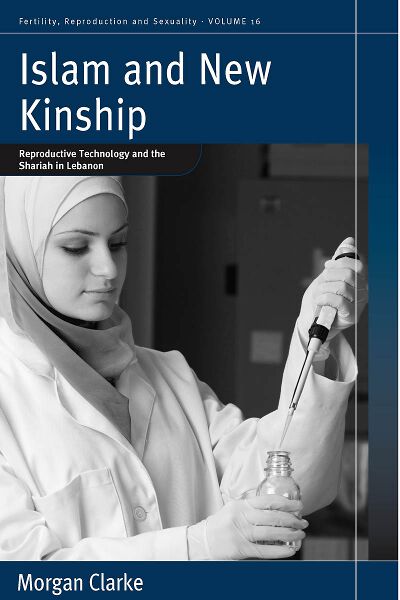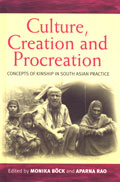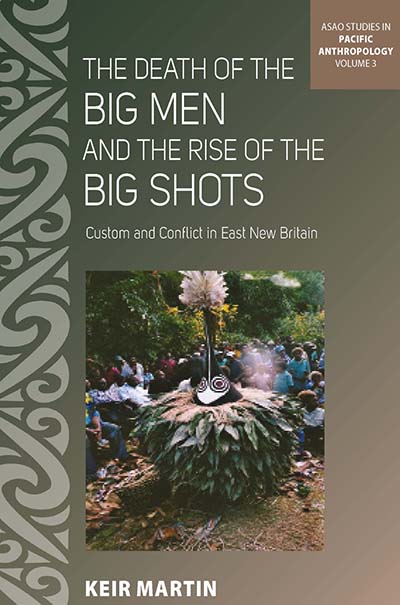
Series
Volume 16
Fertility, Reproduction and Sexuality: Social and Cultural Perspectives
See Related
Anthropology JournalsEmail Newsletters
Sign up for our email newsletters to get customized updates on new Berghahn publications.
Islam and New Kinship
Reproductive Technology and the Shariah in Lebanon
Morgan Clarke
262 pages, bibliog., index
ISBN 978-1-84545-432-6 $135.00/£104.00 / Hb / Published (June 2009)
ISBN 978-0-85745-140-8 $29.95/£23.95 / Pb / Published (March 2011)
eISBN 978-1-80758-713-0 eBook
Reviews
“As Clarke notes, he explicitly did not intend for this research to comprise an ethnography of reproductive technologies in Lebanon. As such, this book serves as an excellent companion piece to medical anthropological studies in the region that are more clinic-based and experiential, for example, those of Marcia Inhorn. This book will be of considerable interest to scholars in the areas of gender and health, reproduction and reproductive technologies, Islamicists, and those engaged in comparative kinship studies. It would be a valuable and effective text for use in seminars and most appropriate for graduate students or advanced (honors) undergraduates.” · Contemporary Islam
“Social scientists interested in any of these areas of study will benefit from familiarizing themselves with Clarke’s work. Those who are particularly interested in the study of reproductive technologies will find notions of milk kinship and adoption aversion useful in considering how ART is contextualized globally. Students of kinship will benefit from this text because it provides a case study of how a culturally relative approach to kinship enriches our understanding of the meanings and markers of the important relationships within a culture/religious tradition.” · Contemporary Sociology
“The book is theoretically sophisticated, beautifully written, and brilliantly cohesive. The author is to be commended for his unflagging engagement with a complex Islamic legal literature, with interviewees supplying him with massive tomes in Arabic containing their legal positions. Most admirable is the endeavour to analyse the perspectives revealed ‘on their own terms’ within the societies that produce them.” · JRAI
“…a fascinating and well-written book…By thinking through anthropological and Islamic debates of assisted conception in a Middle Eastern setting, Islam and New Kinship is highly valuable for students and scholars interested in medical anthropology, kinship studies, Middle Eastern studies, as well as science and technology studies.” · Social Anthropology/Anthropologie sociale
“In this very detailed examination... Clarke presents a nuanced look at how both individuals and institutions interpret or manipulate Islamic teachings and concepts…the book represents an outstanding piece of scholarship for anyone interested in Islam, kinship, medical anthropology, or gender studies. Highly recommended.” · Choice
“This book is a mine of information, carefully researched and lucidly argued. It opens up a fascinating problematic (that is, a can of worms) that only Muslims (all Muslims, male and female) need seriously to address over the coming decades. The shape of future Muslim attitudes depends on the outcomes of this.” · Journal of Beliefs and Values
“An accomplished piece of work on several levels. Islam and New Kinship not only provides a detailed and nuanced account of how Islamic legal scholars and medical practitioners in Lebanon respond to new reproductive and genetic technologies, but also reveals what is missing from ‘new’ kinship studies. It is a compelling read and a must, not only for scholars of kinship and religion but for anybody with an interest in the rich complexity of contemporary Lebanese society.” · Jeannette Edwards, University of Manchester
Description
Assisted reproductive technologies such as in vitro fertilization have provoked global controversy and ethical debate. This book provides a groundbreaking investigation into those debates in the Islamic Middle East, simultaneously documenting changing ideas of kinship and the evolving role of religious authority in the region through a combination of in-depth field research in Lebanon and an exhaustive survey of the Islamic legal literature. Lebanon, home to both Sunni and Shiite Muslim communities, provides a valuable site through which to explore the overall dynamism and diversity of global Islamic debate. As this book shows, Muslim perspectives focus on the moral propriety of such controversial procedures as the use of donor sperm and eggs as well as surrogacy arrangements, which are allowed by some authorities using surprising and innovative legal arguments. These arguments challenge common stereotypes of the rigidity and conservatism of Islamic law and compel us to question conventional contrasts between ‘liberal’ and Islamic notions of moral freedom, as well as the epistemological assumptions of anthropology’s own ‘new kinship studies’. This book will be essential reading for anyone interested in contemporary Islam and the impact of reproductive technology on the global social imaginary.
Morgan Clarke is Associate Professor in Social Anthropology and a Fellow of Keble College, University of Oxford.




